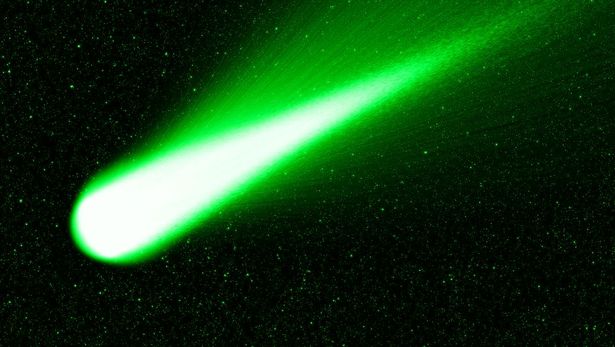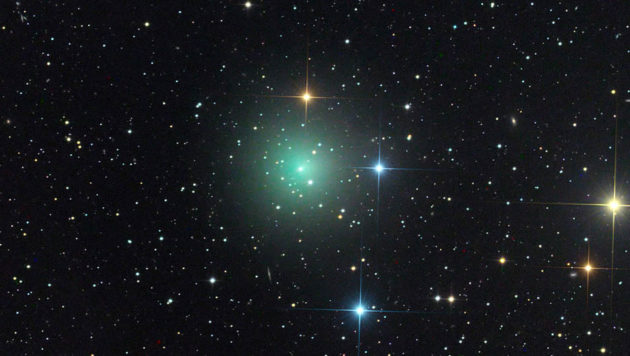The Earth
will be receiving a celestial visit this week in the form of Comet C / 2018 Y1
Iwamoto. This shimmering piece of ice and minerals in shades of green is
already visible in the night sky through telescopes and even binoculars. This
particular comet was only discovered a few months ago by amateur astronomer
Masayuki Iwamoto - and the icy rock is calculated to take 1,371 years to orbit
the Sun on a stretched elliptical path.
Beautiful
photo of the comet. (Image: Rolando Ligustri)
The closest
that the C / 2018 Y1 Iwamoto will reach us will be at a distance of 45 million
kilometers, that is 2.5 light-minutes, or about 118 times as far away as the
Moon. Thanks to its incredible green glow, you can identify it using a simple
binoculars.
But it is
better to be fast: this star is traveling around the Solar System at
approximately 238,000 km / h. Will not stay here forever. The comet has just
passed the Sun, and here on Earth it will be seen traveling through the
constellations of Leo, Cancer and Gemini, before leaving our vision and firing
into the confines of the Solar System again. Use the star Regulus as a
reference to find it, according to the representation of the constellations
below.
Technically,
it is known as an Extreme Trans-Netunian Object, a collection of objects far
beyond Pluto - reaching perhaps five times as far from the Sun as the dwarf
planet. We really encourage you to go out and try to find the C / 2018 Y1
Iwamoto while passing through here, after all, it is not scheduled to return to
the internal Solar System until the year 3390.



Comments
Post a Comment